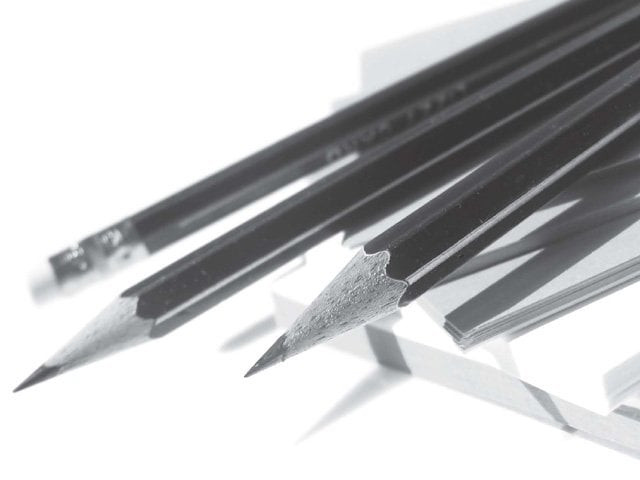On the cards: UET to sign agreement to fight breast cancer
Researchers will collaborate with German varsity to introduce relevant equipment.

German medical experts will also provide training to local doctors to help understand the new tool. PHOTO: FILE
Researchers from the University of Engineering and Technology (UET), who presented a study for diagnosing breast cancer earlier, said on Thursday they have planned to sign an agreement with a German university to introduce the equipment in the market at cheaper rates.
Two researchers from UET, Dr Sahibzada Ali Mehmood and Dr Gul Muhammad Khan told The Express Tribune their study will help pathologists detect the cancer in its initial stages in order to avoid painful surgical procedures.
German medical experts will also provide training to local doctors to help understand the new tool.
“For instance, you can find out your sugar level using a strip, the new tool is similar to that,” said Mehmood, adding this will not only draw revenue for the national exchequer, but the country can also export the equipment.

The study was published in the 14th International Genetic and Evolutionary Computation Conference ’12, in collaboration with Julian Francis Miller from the University of York, UK. Their research ranked first in Evolutionary Computation and seventh in Computer Science.
The study is based on introduction of a Computer Intelligence System called Cartesian Genetic Programming-evolved Artificial Neural Network (CGPANN) to detect breast cancer using Fine Needle Aspiration (FNA) data.
FNA is a less painful yet highly reliable technique for diagnosing cancer. Fluids from the suspected region of the breast is taken out using a fine needle and then examined under a microscope. By looking at the shape, size and roughness of the cell, pathologists determine whether the cancer is malignant (cancerous) or benign (non-cancerous).
In its test, CGPANN produced results that were over 99.9% accurate, with results obtained by the pathologists serving as a reference. The study is expected to provide a second opinion to pathologists and better results than those obtained by other researchers using the same dataset for their systems.
“There are many cultural barriers and limitations that prevent patients from consulting specialists in such cases. Our institutions even hesitate from providing data for research,” said Dr Mehmood, adding many researchers are compelled to work with foreigners who steal their ideas as they have better resources and face no obstacles.
He added they took help from Wisconsin Breast Cancer’s database in USA as they could not get data from any local hospital. “Institutions need to come out of the non-cooperative mindset and help in the noble cause.”
Published in The Express Tribune, February 15th, 2013.













COMMENTS
Comments are moderated and generally will be posted if they are on-topic and not abusive.
For more information, please see our Comments FAQ